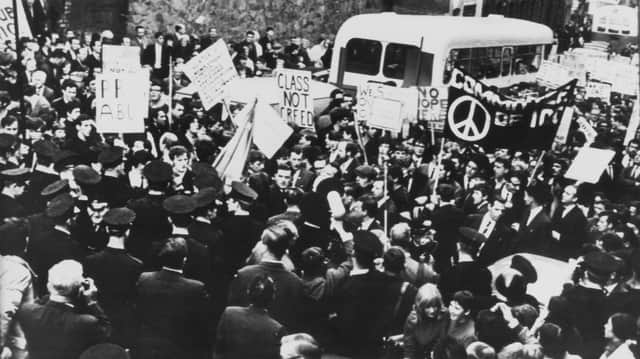Death of civil rights activist Roddy Carlin


Roddy Carlin (Ruairi O’ Carolan), from Creggan, died at the Foyle Hospice on Tuesday last. His funeral took place at St Mary’s Church in Creggan on Saturday morning.
Mr Carlin, a father of two, had been a key player in the civil rights demonstrations in Derry in the 1960s.
Advertisement
Hide AdAdvertisement
Hide AdHe was a leading light in local housing protests and was among a group of people who took part in a demonstration at the official opening of the lower deck of Craigavon Bridge in 1968.


Another veteran of the civil rights struggle, Fionnbarra O’Dochartaigh, recalled the event in his book, ‘Ulster’s White Negroes’.
He wrote: “The mayor and dignatories were confronted by protesters. At a pre-arranged signal, all sat down on the disused railway tracks, effectively blocking a string of quality automobiles. The defiant handful included JJ O’Hara, Tony O’Doherty, Roddy O’Carlin, Neil O’Donnell and Sean McGeehan. The RUC was taken by surprise, having been outflanked in front of the city’s supposed elite. All of us began to sing a newly-imported song from Black America, ‘We Shall Overcome’. During the first verse, RUC personnel rushed towards the small choir. The singers bravely continued with even stronger voices in spite of such philistine interruptions.”
All the protesters, says Mr O’Dochartaigh, were taken away by the police. Both Neil O’Donnell and Roddy Carlin refused to sign a bail bond to ‘keep the peace’ and, as a result, served a period of one month in prison.
Advertisement
Hide AdAdvertisement
Hide AdTheir imprisonment, says the civil rights veteran, sparked off a chain of protests across Ireland. On the evening of their release from prison, a group of local housing activists and their supporters met them at Waterside railway station where they were carried shoulder high in front of watching police.
Eamonn McCann, another civil rights leader in the 1960s, was among those to pay tribute to Mr Carlin.
“I remember Roddy very well,” he said. “A determined and clear-eyed campaigner. There can have been very few in housing stress in the Bogside or Creggan in the mid to late ‘60s who didn’t know Roddy. He was one of the first to take on the powers responsible for the dire housing in the first place. When I think back on those times, I recall a sense of comradeship rarely found now in politics - or anywhere else for that matter.
“Whatever of any use that has been built since, Roddy helped lay the foundations. I cherish his memory.”